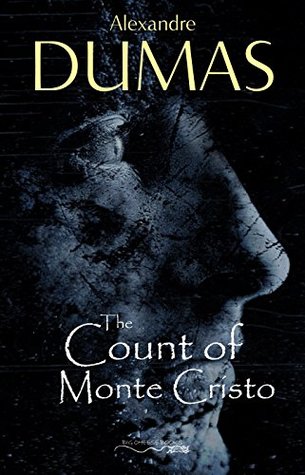More on this book
Community
Kindle Notes & Highlights
Chi ha compagno ha padrone—’He who has a partner has a master.’
full of affection for everybody, because he was happy, and because happiness renders even the wicked good—extended his affection even to his judge, spite of Villefort’s severe look and stern accent.
“The king! I thought he was philosopher enough to allow that there was no murder in politics. In politics, my dear fellow, you know, as well as I do, there are no men, but ideas—no feelings, but interests; in politics we do not kill a man, we only remove an obstacle, that is all.
Caligula or Nero, those treasure-seekers, those desirers of the impossible, would have accorded to the poor wretch, in exchange for his wealth, the liberty he so earnestly prayed for. But the kings of modern times, restrained by the limits of mere probability, have neither courage nor desire. They fear the ear that hears their orders, and the eye that scrutinizes their actions. Formerly they believed themselves sprung from Jupiter, and shielded by their birth; but nowadays they are not inviolable.
misfortune is needed to bring to light the treasures of the human intellect.
unless wicked ideas take root in a naturally depraved mind, human nature, in a right and wholesome state, revolts at crime.
if you visit to discover the author of any bad action, seek first to discover the person to whom the perpetration of that bad action could be in any way advantageous.
Every one, from the highest to the lowest degree, has his place on the social ladder, and is beset by stormy passions and conflicting interests, as in Descartes’ theory of pressure and impulsion. But these forces increase as we go higher, so that we have a spiral which in defiance of reason rests upon the apex and not on the base.
Is the world filled with tigers and crocodiles?” “Yes; and remember that two-legged tigers and crocodiles are more dangerous than the others.”
“Not their application, certainly, but their principles you may; to learn is not to know; there are the learners and the learned. Memory makes the one, philosophy the other.”
Like everything else, we must habituate the senses to a fresh impression, gentle or violent, sad or joyous.
When we show a friend a city one has already visited, we feel the same pride as when we point out a woman whose lover we have been.
I never seek to protect a society which does not protect me, and which I will even say, generally occupies itself about me only to injure me; and thus by giving them a low place in my esteem, and preserving a neutrality towards them, it is society and my neighbor who are indebted to me.”
I accomplished the most astonishing deeds, and which, more than once, showed me that the too great care we take of our bodies is the only obstacle to the success of those projects which require rapid decision, and vigorous and determined execution. In reality, when you have once devoted your life to your enterprises, you are no longer the equal of other men, or, rather, other men are no longer your equals, and whosoever has taken this resolution, feels his strength and resources doubled.”
For all evils there are two remedies—time and silence.
“that you have yet to learn that all things are to be sold to such as care to pay the price.”
“Pretend to think well of yourself, and the world will think well of you,”
when I visit a country I begin to study, by all the means which are available, the men from whom I may have anything to hope or to fear, till I know them as well as, perhaps better than, they know themselves.
What is the use of time, rewards of merit, medals, crosses, Monthyon prizes, if they do not lead society towards more complete perfection? Yet man will never be perfect until he learns to create and destroy; he does know how to destroy, and that is half the battle.”
Your history is quite a romance, and the world, which delights in romances in yellow covers, strangely mistrusts those which are bound in living parchment, even though they be gilded like yourself.
Every man has a devouring passion in his heart, as every fruit has its worm;
the greater number of a man’s errors come before him disguised under the specious form of necessity; then, after error has been committed in a moment of excitement, of delirium, or of fear, we see that we might have avoided and escaped it.
If one’s lot is cast among fools, it is necessary to study folly.
“Probabilities are deceptive.” “But I deal in certainties;
“It is the way of weakened minds to see everything through a black cloud. The soul forms its own horizons;
A man of the count’s temperament could not long indulge in that melancholy which can exist in common minds, but which destroys superior ones.
Remove from me the remains of doubt, which, if it change not to conviction, must become remorse!”
“it is the infirmity of our nature always to believe ourselves much more unhappy than those who groan by our sides!”
Before we are alarmed, we see correctly; when we are alarmed, we see double; and when we have been alarmed, we see nothing but trouble.
There is neither happiness nor misery in the world; there is only the comparison of one state with another, nothing more. He who has felt the deepest grief is best able to experience supreme happiness. We must have felt what it is to die, Morrel, that we may appreciate the enjoyments of living.


